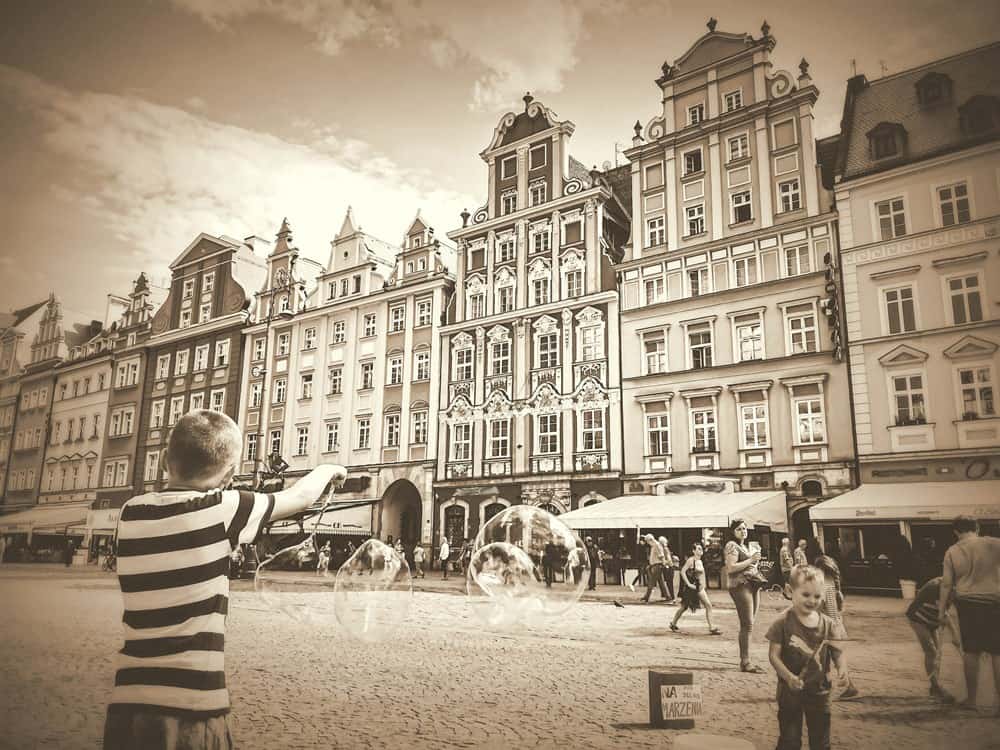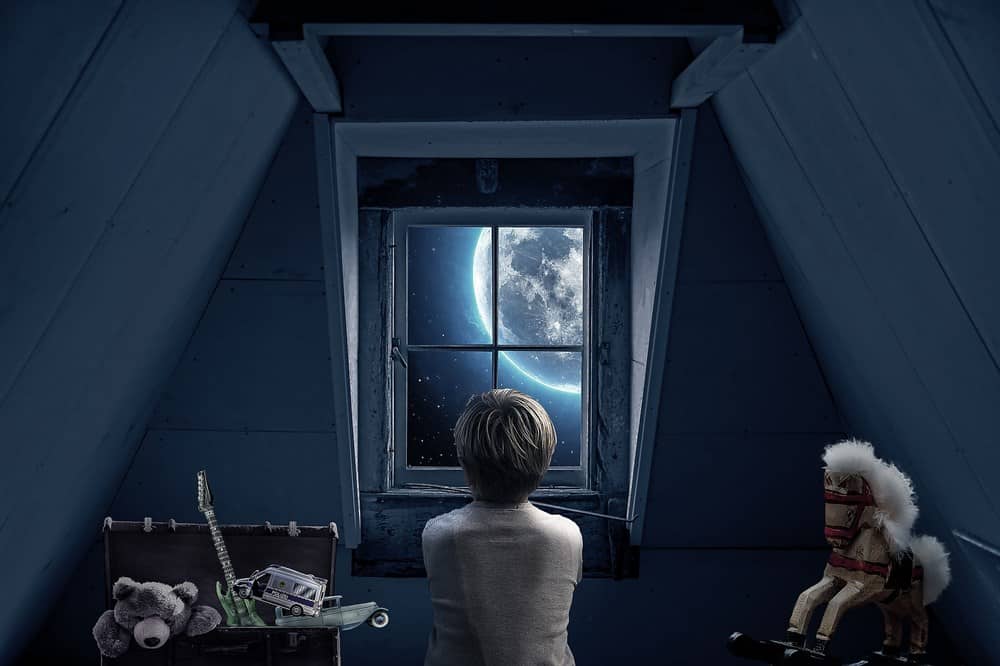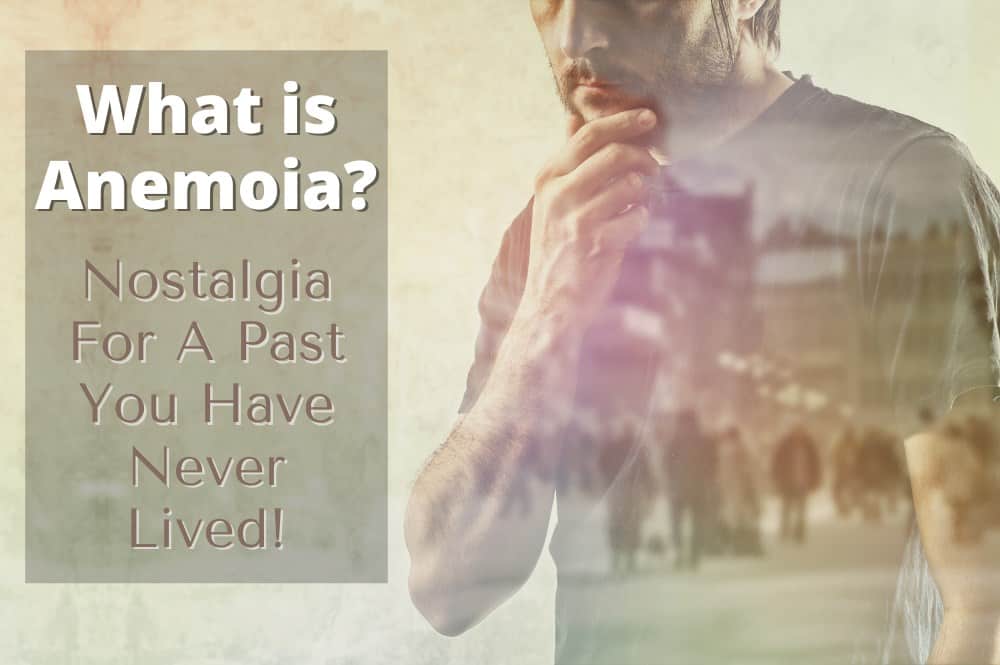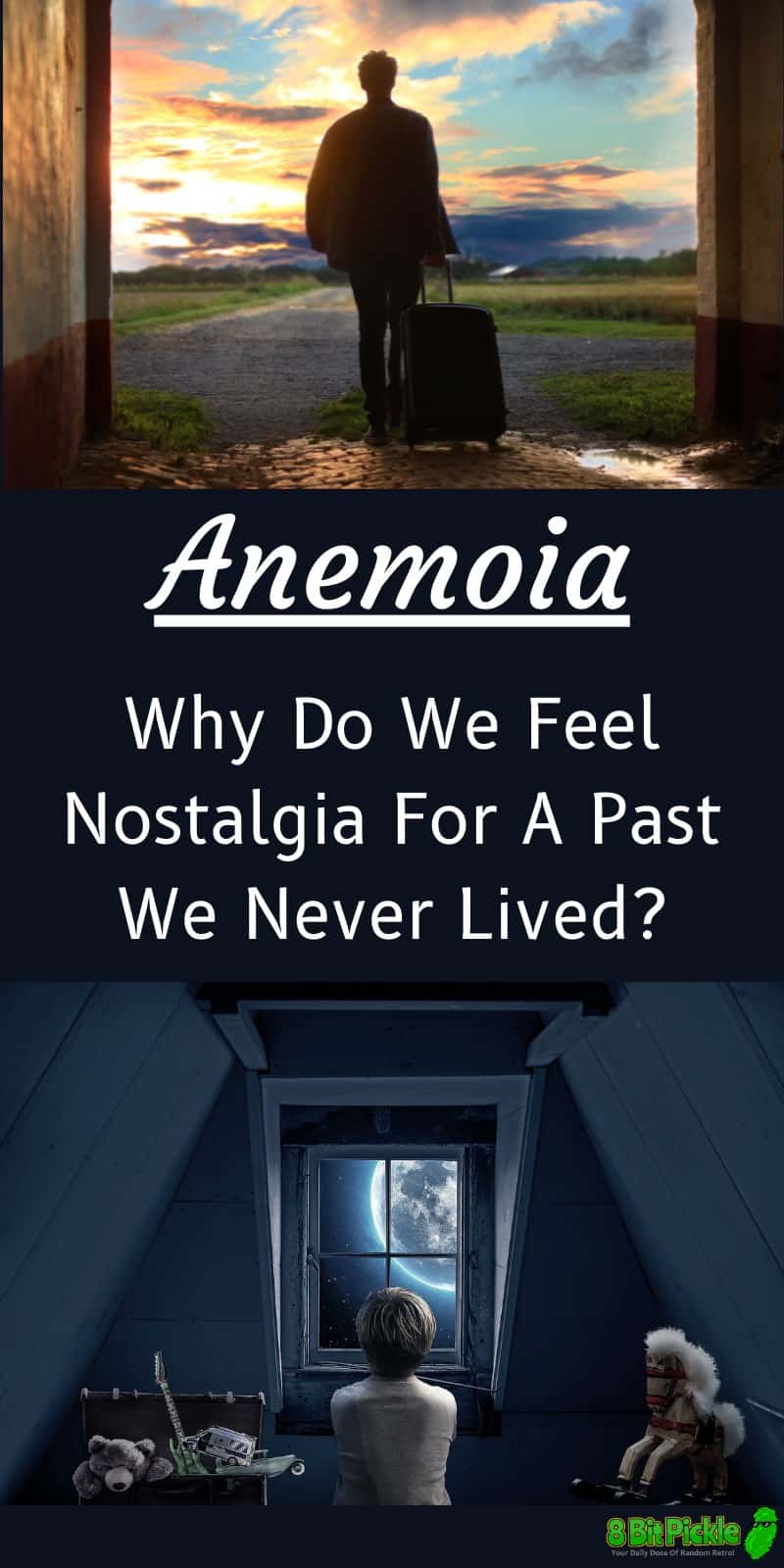Virtually all of us feel nostalgic at some point. That familiar yet bittersweet feeling we get when reminiscing about a particular moment or stage in our lives, that brings us feelings of sentimentality and yearning is one of the universal truths of human experience.
But did you know that it is possible to experience sentimentality for a time you never lived? Today we are going to talk about
What is Anemoia?
Anemoia (noun) means to experience nostalgia for a time you have NEVER known. In other words, to experience true Anemoia, you must experience genuine nostalgia when, for example, you see old photographs or hear sounds that correspond to a time other than the one in which you were born, grew up, and lived.
This is quite a difficult scenario to explain unless you have experienced it for yourself.
Nostos Algos, A Little Bit About Nostalgia
The concept of nostalgia is not a modern construction.
Although it didn’t yet have a name, this emotional state was one of the principal driving forces behind the curtains of Homer’s “The Odyssey”.
All throughout Odysseus’ long journey home, he is plagued by deep sorrow, loneliness, and profound yearning for his distant home. It is this very feeling which gives him the power and perseverance to resist the many adversities he encounters during the narrative.

However, closer to the modern era, when the concept began to be defined and before it was associated with fond remembrance, nostalgia was recognized as a disease! The original name was derived from two Greek words: Nostos, meaning to come home, and Algos, meaning pain or ache.
At one point, it was known as Mal du Suisse, or the Swiss Disease, as it was very commonly connected to Swiss mercenaries fighting abroad. This concept was serious business, as some deaths were attributed to nostalgic notions, and many soldiers were sent home once diagnosed with it.
This medical definition was widely accepted from 1688 to 1910.
However, by the nineteenth century, a new definition was beginning to emerge. Nostalgia began to be considered, not as a disease itself, but as a symptom of melancholy.
nos·tal·gia /näˈstaljə,nəˈstaljə/ noun: nostalgia; plural noun: nostalgias a sentimental longing or wistful affection for the past, typically for a period or place with happy personal associations.
It wasn’t until 1920 that the concept morphed into what English dictionaries now define as a yearning, with typically positive associations, for the past.
However, it should be noted that identifying a specific period in the past like our happy childhood to be worthy of eliciting yearning is not the only manifestation. More abstract manifestations are possible, such as the ability to experience the longing for the values and ideals of a previous generation.
Medieval historians could have been highly nostalgic for the values of the Roman Republic, while Romans of the Republic could have been nostalgic for the frugality of their peasant ancestors.
This highly personal and impactful nostalgic connection to a moment you have not lived has been dubbed Anemoia.
More About Anemoia
It is very likely that the word Anemoia sounds quite alien to your ears. In fact, up until a few years ago, it had never been heard before by anyone.
The term first appeared in a video published on the popular website The Dictionary of Obscure Sorrows, which specializes in coining and defining neologisms for emotions that have yet to be described.
In this post, John Koenig, the author behind this wonderful dictionary delved into a type of feeling or emotion, that while quite common, was very difficult to put into words and intrinsically understand.
When Mr. Koenig coined the definition of anemoia for the Dictionary of Obscure Sorrows, which is sadly spreading throughout the world wide web without often giving credit to the person behind its invention, he painted a vivid picture to help us understand this fleeting emotion.

Let’s try to do as Mr. Koenig so eloquently asked.
Imagine that you walk into a sepia-toned photograph. Imagine that you sit quietly on the side of a transited road. Now imagine that you can see in detail the faces and expressions of the inhabitants of this world as they idly pass by on their way to whatever destinations their lives have in store for them.
Now think about the fact that all of these people, every single one, has experienced pain, grief, mourning, depression, celebration, joy, peace, turmoil, exhilaration, fear, shame, pride.
Realize that all of these people have lived and died entirely unique lives, while at the same time experiencing the same emotions, the same tribulations, the same affiliations, the same blessings that we have in our lives.
These people breathed air and stared at the same moon and stars that dot our sky.
But they did so living in a totally different world. The past, they say, is a foreign country. They do things differently over there.
That is Anemoia.
While this is similar to sonder, sonder generally refers to the present times, not past experiences
The Good Old Days
Anemoia can be expressed in multiple ways and it does not have to manifest in ways that produce completely negative feelings, far from it.
It is very much a manifestation of “the good ol’ days” mentality. It develops into thinking that everything was better in the past and that our present and future are destined for inferiority.
There are entire genres of music such as Synthwave, Synthpop, or Vaporwave, that perfectly frame this nostalgic experience. Synthwave songs explore a sound environment that transports us to a version of our musical world purely anchored in the decade of pop culture excellence, the 80s.
The 80s were, logically, radically different in all possible ways. Pop culture, and culture in general, was dominated by bright, colorful, striking imagery, larger-than-life personalities, consumerist tendencies and mentalities, over-the-top and daring fashion, rampant technological breakthroughs, and a heightening of Image as a defining characteristic of value.
Synthwave, and its sister genres Chillwave and Retrowave, is heavily inspired by an 80s sensibility and, above all else, aims to celebrate an era that we have long lost.
Listening to Synthwave perfectly encapsulates Anemoia and the effects it can trigger in the brain. Entire generations are now deeply aware and highly invested, of an age which precluded them by decades.
Anemoia can elicit strong and meaningful bonds between ourselves and another time. In other words, it can be said to be an effective method of mental time travel, as it allows us to experience profound emotional connections with imagery, sounds, and people that we would never otherwise experience.
Anemos Noos
John Koenig developed the term Anemoia based on the combination of two Greek words. The first of these, Anemos, means wind. The second, Noos, represents a uniting and integrating force between emotion and experience.
Thus, Anemos-Noos represents a psychological corollary of Anemosis.
Imagine winds strong enough to bend trees and reshape them to the point that the trees themselves appear to be supported by the winds. This is Anemosis, and this is the force that is discovered in Anemoia. A force that is inherently strong enough to reshape our connection with our reality.
It can be experienced under many different circumstances. For example, you can experience Anemoia in profound ways by developing a connection to a person whom you know absolutely nothing about. You have never exchanged a word with him or her, you have never had any sort of interpersonal contact with this person. Yet, you develop a connection for a time of emotional connection and physical contact that never even existed, to begin with.
Anemoia Is A Powerful And Moving Force.

It can happen while you watch a movie and, in the blink of an eye, you are transported to an emotional reality where the movie is no longer fiction. From a profound emotional place, you are capable of experiencing a connection with the cast.
These are people you not only have never met, they don’t even exist in the real world. Yet, somehow, you know them, you miss them, you need them. There are no explanations for this beyond the fact that our minds are seeded with powerful emotional queues that are triggered by an instinctive understanding and recognition of someone else’s emotional reality.
The media we read, the images and sounds which surround us, have deep within a coded representation of the people who created them. This “code” is able to transmit across distance and time a plethora of memories, sensations, emotions, and experience that triggers powerful nostalgic sensations that live deep in our core.
Life In Medias Res
The definitions and concepts of Nostalgia have come a long way. Nowadays, researchers understand it to be a highly positive emotion. We can experience wistfulness at any stage of our lives, from ages as early as nine years old.
Nostalgia is a universal emotion as it manifests in all cultures of the world.
Anemoia is just as widespread and emotionally relevant. And now that the term is gaining more notoriety, more and more people will learn to recognize it when it strikes.
In the internet age where social and cultural change is vertiginous and our emotional lives move at a faster pace than ever before, understanding the past can help us to identify the true value of our interpersonal relationships and emotional connections.












Anemoia …. Been looking for a word that describes these weird feelings (neither good nor bad really) I have when I walk by a place, usually a school or business or building that is closed and/or likely now unused for some reason, and think about all the people and stories that happened in that place, and feel a light melancholy for this place and its past. Maybe this is the word. I tried “saudade” too but that seems more related to a specific person I would know who is now gone.
That is a nice clinical explanation but sometimes, it’s so profound, you ‘know’ you have experienced it before. So you can then say ‘Well it’s reincarnation’ but I think it’s more to do with DNA memory. I think you carry a memory in your cells, in your DNA of ancestors that did actually experience that and it’s just awakened. We all know we can resemble people from generations ago so somewhere in your genetic memory, you carry their code. It’s so lovely to think that way. That long after we’re gone, someone one day will think ‘Woah…I remember…I feel…I’m sure I lived this. Well in a way you did.